15 Reasons Kids Need Fewer Camps and More Boredom
This post may contain affiliate links. As an Amazon Associate, I earn from qualifying purchases.
We’d all be millionaires if parents got a penny for every “I’m bored!” they hear. Nowadays, kids’ calendars are as packed as those of adults, and the idea of boredom seems almost illegal. Unfortunately, constant scheduling can potentially stifle creativity and independence. This summer, just like all the others before, most parents are rushing to fill every moment of their children’s lives with camps, classes, and extracurricular activities. Before you pack the sandwiches, take a moment to consider that the downtime isn’t wasted time.
Recent insights into child development suggest that boredom is not only a natural state but also a beneficial one. Boredom, often misunderstood, serves as a catalyst for creativity and self-discovery in children. This summer, encouraging a child’s creative or entrepreneurial side by providing them with basic tools and resources.
Below, we’ll explore how letting kids experience boredom can lead to significant personal growth and development.
1. Boredom is Informative

If a child is bored with one game, they should know it’s time for something else. Boredom acts as an internal signal, suggesting that the current activity or lack of it isn’t fulfilling. This helps children think about what they really like to play.
It encourages kids to dig deeper into their feelings, helping them identify their hobbies and dislikes. This is crucial for personal development. Let them figure out what the next game should be, and enjoy what they come up with.
2. Boredom Leads to Fulfillment

When children are left to their own devices, they’re more likely to invent games, explore new interests, or simply daydream. Although seemingly aimless, these activities are vital for developing a sense of satisfaction and fulfillment.
When kids aren’t constantly distracted, they learn to enjoy simple things, which helps them appreciate the world more. Let them get their hands dirty and create their own fun rather than being entertained by video games and TV shows.
3. Boredom Sparks Creativity

Without the pressure of schedules or structured activities, kids are free to let their imaginations run wild. They may discover new hobbies or create their own games.
Creating something from nothing is an essential skill that children need to learn. By allowing them the time and space to be bored, they can tap into their creative potential. You may be burying a Michelangelo under the screens and video games.
4. Boredom Cultivates Independence

Too often, kids rely on external sources of entertainment and stimulation, leading to a lack of independence. Too many activities and constant supervision can hinder a child’s ability to think independently.
Boredom forces children to rely on available resources and come up with solutions, which builds their confidence and self-reliance. Letting kids be bored allows them to learn how to entertain themselves, making them more independent and self-sufficient.
5. Boredom Develops Resilience
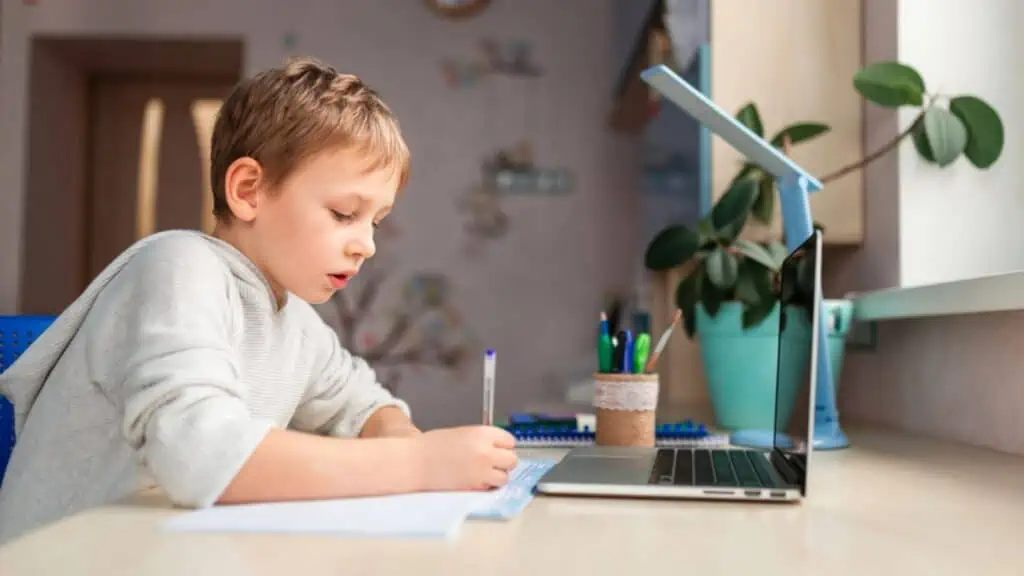
In a world where everything is readily available at the click of a button, kids may struggle with resilience when things don’t go their way. However, they learn how to handle discomfort and disappointment when left to face boredom.
Being bored teaches children to persevere and find ways to entertain themselves, which can help them cope with challenges and setbacks in the future. It also teaches them they don’t always need to be entertained or stimulated, building resilience and adaptability.
6. It Helps Them Develop Planning Strategies

Faced with the challenge of self-entertainment, children learn to plan and execute their ideas. Whether deciding what game to play, creating an art project, or building a fort, they develop organizational and planning skills.
This self-driven decision-making process reinforces the importance of thinking ahead and setting goals. As a parent, it can help to stop being the project manager for all your kids’ entertainment.
7. Boredom Helps Develop Problem-Solving Skills
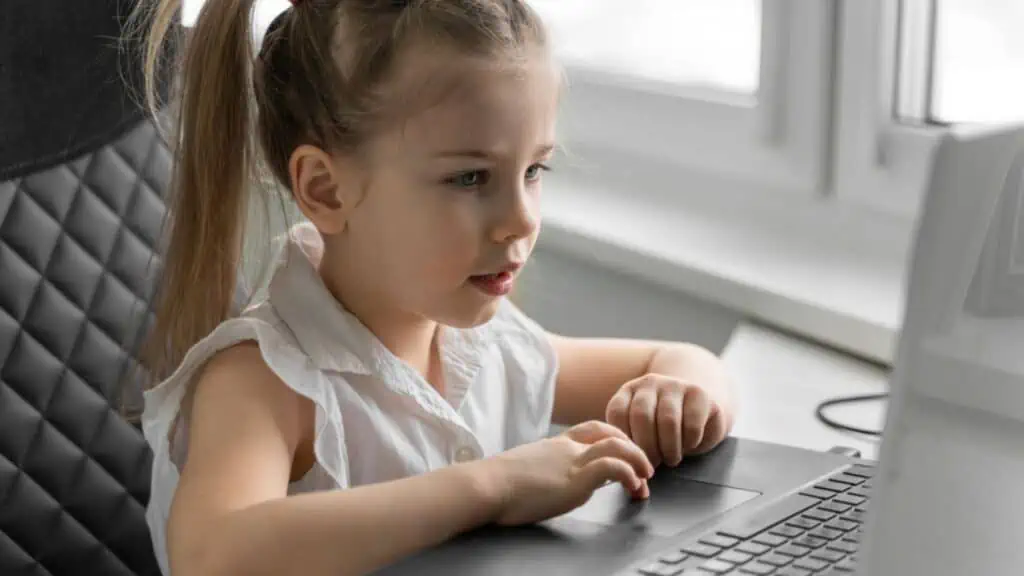
Unstructured playtime lets kids face challenges or small problems on their own. Without adults stepping in right away, they learn to solve problems, work out issues with friends, and find their own solutions, which improves their problem-solving skills.
Problem-solving isn’t just finding the value of X and Y in algebra but also figuring out a fun way to spend an afternoon. It’s an essential life skill that can be enhanced by simply letting kids experience boredom.
8. Boredom Encourages Healthy Risk-Taking
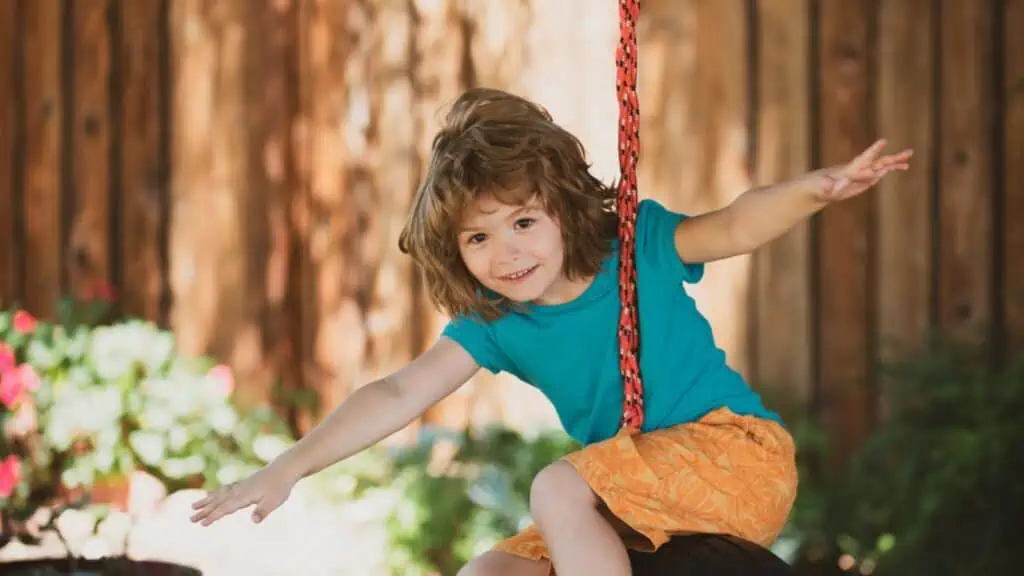
There are many paranoid, helicopter parents today, and they’re not helping the kids become risk-takers much. Kids may be more likely to take risks and try new things when bored. As long as these activities are safe and supervised, healthy risk-taking can lead to personal growth and self-discovery.
It also helps children learn their limits and boundaries, building self-awareness and confidence. Healthy risk-taking prepares them for future challenges and opportunities as they learn to embrace new experiences.
9. Boredom Encourages Self-Reflection
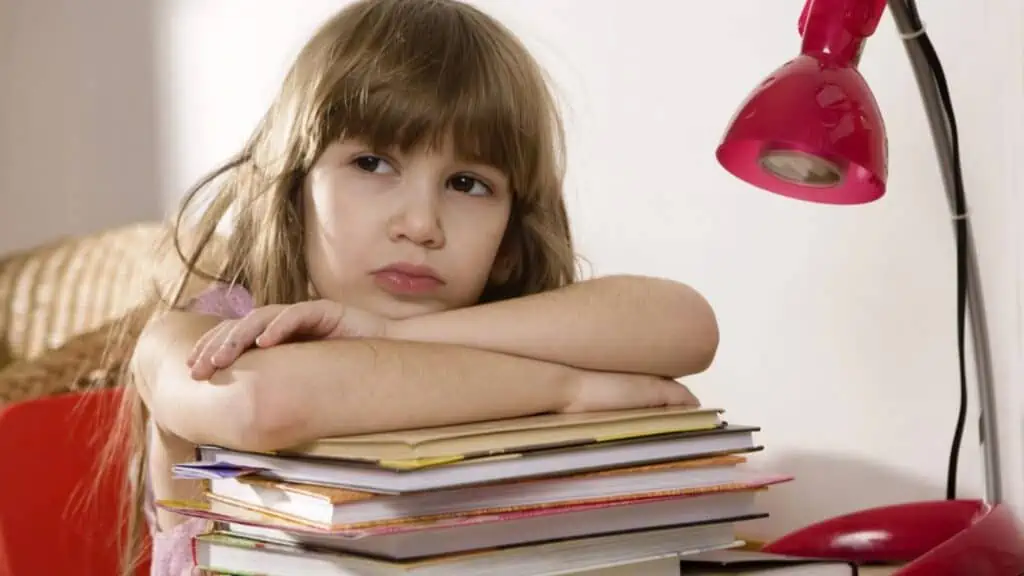
With schedules filled with camps, soccer practice, and structured play dates, we risk raising children who don’t even know who they are. Boredom allows kids to be alone with their thoughts, which can lead to self-reflection and introspection. They can process their emotions without constant distractions and learn valuable lessons about themselves.
This self-awareness helps children develop empathy and understanding for others, which are crucial social and emotional skills. It also encourages them to be more mindful of their actions and behaviors, leading to personal growth and maturity.
10. Gives Them Flexibility
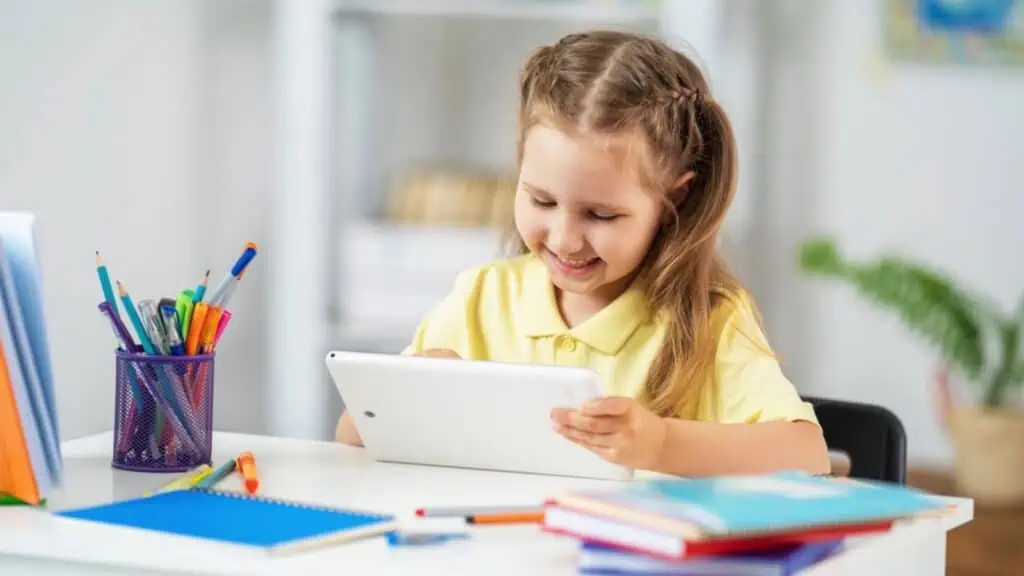
A few years ago, we woke up to a contagious flu, and life as we knew it changed then. Things are largely back to normal, but that taught us that the world is constantly changing and it isn’t always a good change. The ability to adapt is invaluable.
Boredom teaches children to switch gears and adapt to new conditions when their initial plans don’t work out. This flexibility is a key skill in effectively navigating life’s ups and downs.
11. It Helps Kids Build Tolerance for Not-So-Fun Experiences

They don’t say that life is a rollercoaster without reason. Sometimes, that coaster runs through the mud. Life isn’t always filled with engaging activities and happy moments. By experiencing boredom, children learn to tolerate and find contentment in less-than-ideal situations.
This resilience is essential for coping with future challenges and setbacks. Moreover, boredom can teach children to appreciate life’s small and mundane moments, leading to a more grateful and positive mindset.
12. It Makes Kids Good Conversationalists Who Play Well with Others
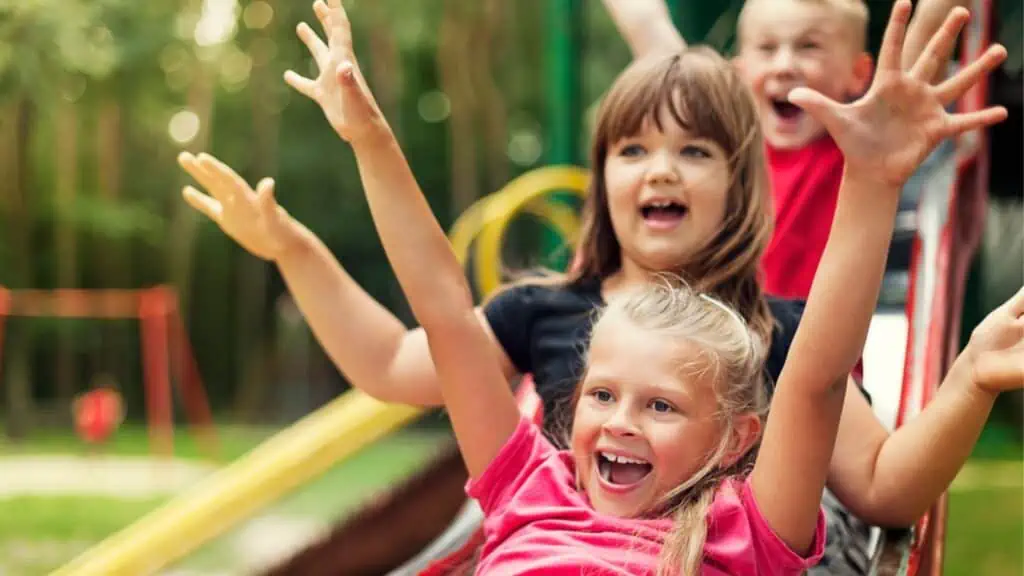
Psyshologists say that most kids’ social skills are declining, and some can barely hold a conversation. Boredom encourages children to engage more deeply with others, leading to the development of strong conversational skills.
Kids not preoccupied with structured activities have more opportunities to interact, share ideas, and collaborate creatively, establishing healthy social habits.
13. Makes Them Content with Simple Distractions

Can your child be distracted by a butterfly, or they’re too grown-up and overstimulated? Children accustomed to filling their boredom with their creativity and simple play are more likely to find satisfaction in life’s small pleasures.
A book, bouncing stones in a river, or running after each other with a water gun is enough to keep them entertained. They learn that they don’t always need fancy things or constant stimulation to be happy, leading to a more humble and fulfilling outlook on life.
14. Boredom Encourages Children To Find Their Passions

Boredom allows children the time and space to discover their interests and passions. It lets them explore different activities and hobbies, leading to self-discovery and personal growth.
Through boredom, children may find a love for music, art, sports, or any other activity that captures their attention. They can even become entrepreneurs because they spent a summer afternoon selling lemonade.
15. It Makes Kids Fun to Be Around

Have you spent a day with a child who constantly expects you to be their source of entertainment? I bet you didn’t leave feeling like they were the greatest kid in the world.
Kids who can entertain themselves and approach the world with a sense of curiosity and imagination are naturally engaging and enjoyable company. Their ability to invent fun scenarios and entertain ideas without the need for constant external stimulation makes them delightful peers and siblings. This skill also leads to better relationships and adaptability in adulthood.
20 Strong Words Parents Should Never Say to Their Kids

Countless adults sitting in a therapist’s office today are grappling with the lasting impact of words spoken by their parents during childhood. Regardless of how you perceive yourself, in your child’s eyes, you are nothing short of the most remarkable thing to happen to them since “skip intro.” This underscores the critical importance of being mindful of what you say to your children, as your words become the small but influential voice in their developing minds.
20 Strong Words Parents Should Never Say to Their Kids
16 Common Phrases Grandparents Should Stop Saying to Their Grandkids

Do you still remember something your grandparents said that made you uncomfortable? As much as we adore our grandparents, their words (even with good intentions) can sometimes hurt our feelings or are plain embarrassing.
If you are a grandparent, using your words mindfully around your grandkids is as crucial as any other relationship. Words hold immense power and shape our kids’ behaviors and perceptions.
16 Common Phrases Grandparents Should Stop Saying to Their Grandkids







